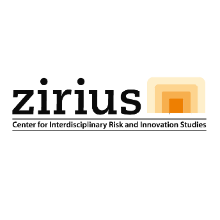The aim of the project is to measure heat in a specific district of Stuttgart West and implement concrete measures so that heat reduction can be experienced. Visualization and implementation open up opportunities to enter into dialogue with residents, businesses and political decision-makers more easily and facilitate transformation.
Multi-stage scenario creation using cross-impact-balance analysis (CIB) and REMix, taking into account path changes and disruptions
CampUSi is a real-world laboratory focussing on climate neutrality by investigating sustainable planning processes using intelligent control systems for buildings
Investigation of social and technical potentials and challenges of the application of computational design methods in building design practice
The aim of the project is to develop digital learning units on the topic of adaptation strategies in urban water management to the impacts of climate change. In particular, the focus is on linking the various sub-disciplines of urban water management as well as the risk analysis and assessment of individual adaptation measures. The target group is students of urban water management.
The interdisciplinary research initiative at the University of Stuttgart is concerned with the development and application of simulation-based, digital visualization tools (VR/AR) for stakeholder participation in urban energy system transformations. The aim is to support decision-making processes and drive forward the energy transition in existing neighborhoods.
The goal is to analyse possible ways to motivate employees and students to save energy and help achieve climate neutrality at the university of Stuttgart. EKUS exponent i builds on technical research concerning single room intelligent control systems and sociological research on motivational factors influencing individual, environmental behaviour.
Mapping future changes in demand for electricity using cross-impact balance analysis (CIB)
In the joint project Genese, a systematic characterization of different aspects of societal change, the recording of the effects of change on electricity demand, a detailed modeling of the change in demand profiles and the evaluation of these profiles via the integration into energy system models with low temporal resolution as well as electricity market models with high temporal resolution is carried out. The CIB-Lab analyzes aspects of societal change and creates consistent, cross-sectoral driver constellations for demand change with the CIB, which act as a starting point as well as a link between the models.
Methods for the Integrative Exploration of Design Spaces for Future Timber Buildings within Existing Urban Contexts
Social, Environmental, Technical and Economic Integration
The objective of the research project ‘InvestAgent’ is to investigate how investment decisions in the renewable power sector can be modeled as realistically as possible and whether the decisions made in the model can contribute to the achievement of current climate targets as well as long-term security of supply. The focus of the analyses is on investment decisions in renewable generation units and flexible capacities with a special focus on modeling uncertain future revenue and cost expectations.
The technology of Managed Aquifer Recharge (MAR) with treated municipal wastewater, which has been proven in Germany, will be introduced as a nature-based solution in Peru and its potential for the cost-effective provision of high-quality service and drinking water in densely populated water-deficit regions will be examined. Participatory stakeholder integration processes are used to support effective exchange among water sector stakeholders.
The joint project SyKonaS develops a fundamental, conceptual and methodological approach for the analysis of actor conflicts in energy transition pathways. To this end, the CIB Lab analysis the interactions between conflicts on different levels of the transformation process on the one hand, and the institutional, technical, economic and legal framework conditions on the other hand (conflict lines). In order to support the knowledge gain with practical knowledge, stakeholders are involved who contribute to the identification of conflicts, the assessment of systemic interactions and the development of solutions.
TechnikRadar is a joint project by the Körber Foundation, acatech, ZIRIUS and theDepartment of Sociology of Technology and Environment at the University of Stuttgart. The aim of the project is the regular collection of empirical data and analysis of the attitudes, expectations and perspectives in relation to new technologies and technical change.
Innovative policy mixes for housing affordability and urban redevelopment
URBANOME synthesizes environmental, social, and functional characteristics of a city into an integrative analytical framework that facilitates the identification of key determinants of health and well-being in the city. In doing so, it supports the co-design and testing of policies and preventive interventions to improve urban health and well-being through reallaboratories.
Structural-physical and social aspects of facade-integrated habitat systems for insects
The survey of around 2,000 15 to 17-year-olds in Baden-Württemberg provides an up-to-date picture of the state of mind of young people and important impulses for youth policy.
The research project ZUSYNQ is funded by the Federal Ministry of Health and evaluates to what extent a structural further development of the Municipal Health Conferences in Baden-Württemberg contributes to an increase in the quality of public health planning.
As a consequence of climate change, conflicts over groundwater and surface water are also expected to increase in Germany in the future. As part of the Ladenburger Kolleg of the Daimler and Benz Foundation, a joint project coordinated by ZIRIUS is researching these possible conflicts. With the help of participatory modeling and serious gaming, future contexts and actor strategies are examined in their interactions.



